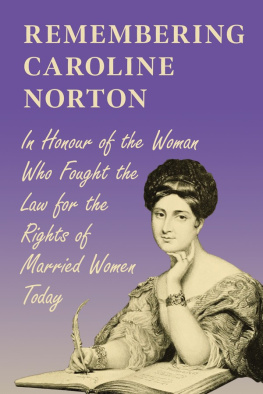CONTRIBUTORS
MAXINE P. ATKINSON, Associate Professor of Sociology, North Carolina State University, Raleigh
JACQUELINE BOLES, Associate Professor of Sociology, Georgia State University, Atlanta
SARAH BRABANT, Professor of Sociology, University of Southwestern Louisiana, Lafayette
ELIZABETH BROWN-GUILLORY, Assistant Professor of English, Dillard University, New Orleans, Louisiana
JAN K. BRYANT, Research Associate, Manpower Demonstration Research Corporation, New York
JULIA BURKART, Assistant Professor of Sociology, Arkansas State University, State University
DONNA KELLEHER DARDEN, Associate Professor of Sociology, University of Arkansas, Fayetteville
CAROLINE MATHENY DILLMAN, Director of Off-Campus Programs and Continuing Education and Associate Professor of Sociology, Reinhardt College, Waleska, Georgia
MARY CAROLYN ELLIS, Professor of Law, University of Mississippi Law Center, Oxford
MARY GEHMAN, Instructor of English, Loyola University and Delgado Community College, New Orleans, Louisiana
BECKY L. GLASS, Associate Professor of Sociology, State University of New York, Geneseo
JOANNE V. HAWKS, Director of the Sarah Isom Center for Womens Studies and Assistant Professor of History, University of Mississippi, Oxford
WILLIAM F. KENKEL, Professor of Sociology, University of Kentucky, Lexington
VIRGINIA KENT ANDERSON LESLIE, Decatur, Georgia
ELAINE LEVIN, Professor of Psychology, Counseling Center, Georgia State University, Atlanta
JOHN LYNXWILER, Assistant Professor of Sociology, University of Alabama at Birmingham
SUSAN MIDDLETON-KEIRN, Associate Professor of Anthropology, California State University, Stanislaus, Turlock, California
PATRICIA MORTON, Associate Professor of History, Trent University, Peterborough, Ontario, Canada
KATHRYN PALUMBO, Agency Coordinator, Atlanta Community Food Bank, Georgia
SARAH M. SHOFFNER, Assistant Professor of Child Development and Family Relations, University of North Carolina at Greensboro
LYN THAXTON, Associate Professor, Library, Georgia State University, Atlanta
SUSAN TUCKER, Fellow, Newcomb Center for Research on Women, Tulane University, New Orleans, Louisiana
CAROLYN E. WEDIN, Professor of English and Womens Studies, University of Wisconsin-Whitewater
MICHELE WILSON, Associate Professor of Sociology, University of Alabama at Birmingham
PREFACE
Southern Women is a collection of chapters about women of the South, that is, women who not only were born and reared in the South but more importantly have a heritage of Southern culture and generations of Southerners in their family background, both dating back to antebellum days. Gastil has written, [N]early all Southerners trace their ancestry in this country back before 1850, and most of them before 1800.
Most authors of books on the South, its culture, and/or Southerners state early on, usually in a footnote, that the term Southerner is commonly used to mean white Southerners, incorrect though that may be. And the writers proceed to exclude black Southerners from their works. I am happy to report that this book very much includes black Southern women. In addition, the articles span a time frame from antebellum days to contemporary times. The Southern women presented here also span a spectrum of classes, an unusual aspect of a work on Southern women since most of the body of literature on the subject centers on middle- and upper-class Southern women.
In 1970, with the emergence of the womens movement reflected in new works on women and eventually on Southern women, Scott decried the sparsity of publications on Southern women. Now, several years later, works on Southern women are finally beginning to reach the public in the form of publications as well as lectures, seminars, and courses.
Early on Hawks and Skemp offered as a solution to the problem the development of new methodologies and reliance on an interdisciplinary approach.
In summary, then, there is a current acknowledgment of a need for disciplines (e.g., sociology, anthropology, psychology) within an area (e.g., social sciences) to become not only more interdisciplinary but also to aim for a better balance between and a blending of the sciences and the humanities. Daniel Bell says, There is a sense that no single interpretation or explanation can be complete.
Taking into consideration, then, the research problems peculiar to the study of Southern women and the paucity, until very recently, of research publications on Southern women, as editor of this book, I have joined ranks not only with Hawks and Skemp in their insistence on the necessity of interdisciplinary studies of Southern women but also with the aforementioned scholars from a number of disciplines who are questioning the iron-clad scientific positivism, are calling for new modes of inquiry, and are recommending a mix of approaches and perspectives within the social sciences as well as a blending with those of the humanities.
It is indeed mandatory to examine the subject of Southern women through wide-angle lenses that include a number of interdisciplinary methodologies and analyses. The result here is that this work represents not only a number of disciplines but also includes an eclectic mix of modes of observations and techniques. The authors of these articles include not only historians, sociologists, an anthropologist, and a psychologist but also professors of English, law, and womens studies as well as a librarian, a director and a fellow of a womens studies center, two Ph.D. candidates in a graduate institute for liberal arts, a social service administrator, and a research associate. In addition to the expected quantitative approach with structured questionnaires and interview schedules, the articles have also incorporated qualitative methodology in the use of ethnographic and historical accounts and even an autobiographical case study.
The first chapter, The Sparsity of Research and Publications on Southern Women: Definitional Complexities, Methodological Problems, and Other Impediments, is a review of the current and historical literature on Southern women and a discussion about the lack of works on Southern women and the underlying reasons.










